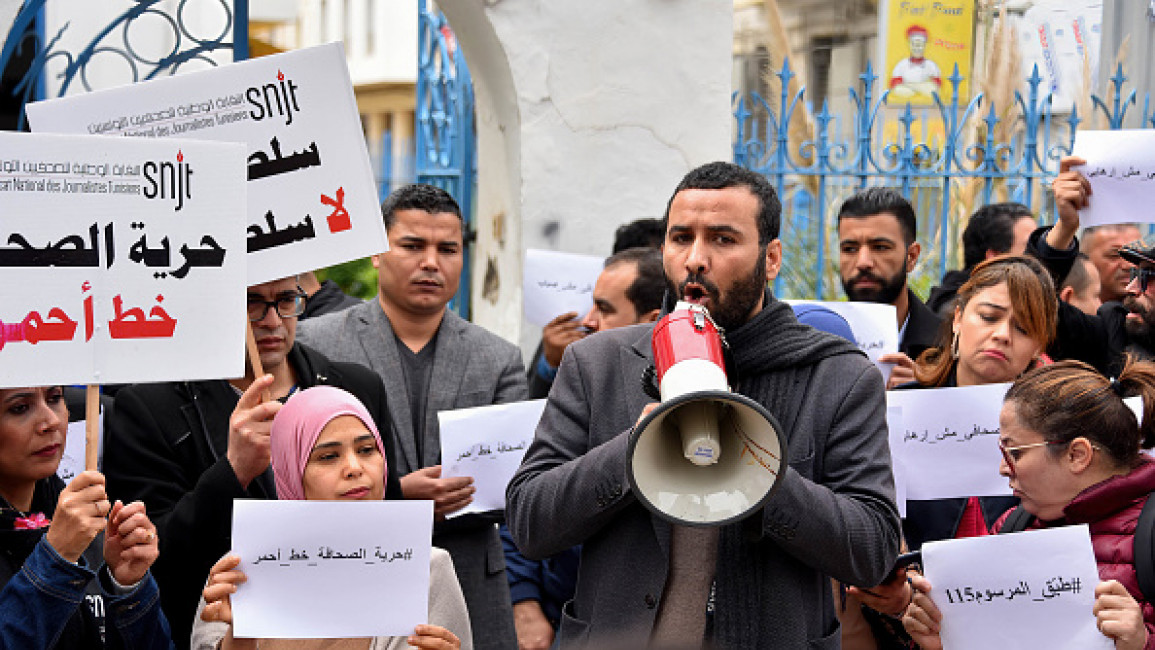Tunisian journalists launch strike against Saied's attempts to control media
Tunisian journalists begin a general strike on Saturday, reacting to "attempts to control public media" and "policies of indifference and neglect practised by the authorities", which have left Tunisian media "under-funded, marginalised and unprotected", a statement by the National Syndicate of Tunisian Journalists (NSTJ) has said.
The strike was forced by "a lack of serious interaction or negotiation from anyone inside the government", the statement added.
The nationwide strike includes a swathe of official media channels belonging to Tunisian broadcasting and television institutions, the Tunisia-Africa News Agency, and others.
The outlets involved will suspend almost all coverage, focussing their attention solely on the strike itself - and "extremely urgent matters of necessary public interest".
The syndicate has been threatening a strike since 11 March, demanding that authorities reverse censorship attempts and deteriorating working conditions at state-run Wataniya TV.
The strike began at 11:00 AM local time after the syndicate said that the journalists' demands were not met.
Yassine el-Bahri, a Wataniya cameraman who is also a SNJT vice president said: "Our television is supposed to be public, not governmental."
Declining freedoms
Human Rights Watch regional deputy director Eric Goldstein wrote last week that President Kais Saied had "set about dismantling institutional checks on his authority since his July power grab, and state television is an obvious target".
"Tunisian television is experiencing its worst period since the 2011 revolution," said NSTJ president Mohamed Yassine Jelassi to the New Arab's sister site al-Araby al-Jadeed.
"It has become monopolised by supporters of president Saied and his decisions, and has been cleansed of any opponents," said Jelassi.
Freedom of speech and press was a key gain for Tunisians after the 2011 revolution that ended the rule of former President Zine El Abidine Ben Ali and triggered the Arab Spring protests.
However, the democratic system adopted after the uprising is in deep crisis after President Kais Saied last year suspended the parliament, seized executive power and brushed aside the constitution to rule by decree.



